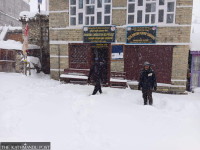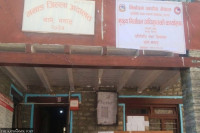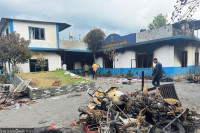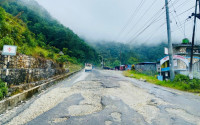Gandaki Province
Water supply in Baglung Bazaar insufficient for the growing population
The construction of several small scale projects over the years has not been able to solve the drinking water crisis in Baglung Bazaar that has seen rapid urbanisation and a rise in population.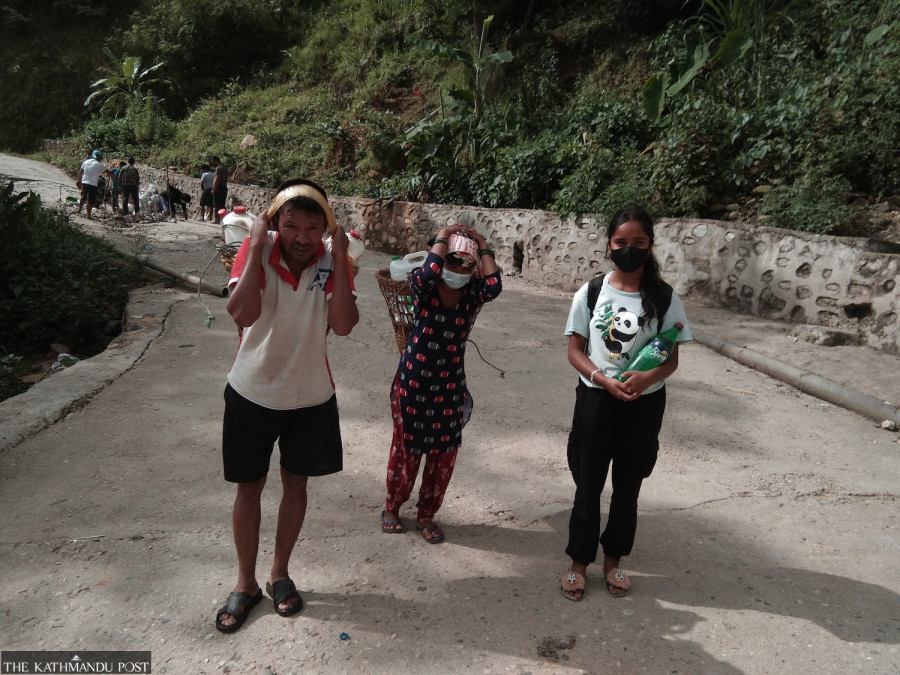
Prakash Baral
For the residents of Baglung Bazaar, the headquarters of Baglung district, shortage of clean drinking water is a decades-old problem. The area, home to prominent political representatives, administrators and businesspersons, has been under drinking water shortage for the past five decades despite the authorities spending hundreds of thousands of rupees on various water projects.
The construction of several small scale projects over the years has not been able to solve the drinking water crisis in Baglung Bazaar that saw rapid urbanisation and a rise in population after it was named the district headquarters.
The locals say the taps in the community have run dry and those that are still in operation don’t give clean drinking water.
“There are over 4,000 taps in Baglung Bazaar. But most of the taps have run dry and those that give water do so for two hours a day only,” said Kamala GC, a resident of Baglung Bazaar.
“We don’t get water supply at home and even when we do, the water we get is untreated and unfit for consumption,” she said. “During this year’s monsoon, we did not get any water supply.”
The monsoon rains had damaged the water supply lines in Baglung Bazaar.
Himal Prasad Sharma, manager of the Baglung Municipality Drinking Water and Sanitation Consumer Committee, said landslides triggered by monsoon rains damaged pipelines and disrupted water supply to the area.
“The landslides swept away 22 pillars that were supporting a water pipeline. The 300-metre-long pipeline used to supply water to Baglung Bazaar from Resh Khola and Bhundi Khola in Kathekhola Rural Municipality,” said Sharma. “Repairing the pipeline took us a while and resumption of water supply was delayed.”
Besides piecemeal projects, the district headquarters also boasts of big drinking water projects but these projects are about 50 years old and incapable of catering to the growing population of Baglung Bazaar.
In an effort to resolve the drinking water crisis, a project was initiated in 1975/76 that supplied water from Rithey Khola in Tityang to the area through 13 public taps.
“Although the project gave some respite to the locals then, it could not sustain the growing population,” said Hari Prasad Shrestha, chairman of the Baglung Municipality Drinking Water and Sanitation Consumer Committee.
Later in 1995/96, a project that would bring 17 litres of water per second to Baglung Bazaar from Resh Khola was completed at a cost of Rs150 million. However, the project could not fulfill the water needs of the growing population, and in 2009/10, another project was initiated with an aim to supply 20 litres of water per second from Bhudi Khola to Baglung Bazaar.
According to Sharma, manager of the consumer committee, another project at Rithe Khola, which was supposed to supply 40 litres of water per second to the bazaar area, has not been running at full capacity.
Another project that has been in the pipeline since the fiscal year 2016/17 aims to supply 70 litres of water per second to Baglung Bazaar. However, work under the project, which is being done with 30 percent investment from the consumer committee and 70 percent from the federal government, is in shambles.
“The project aims to collect water from the river and filter and supply it to Baglung Bazaar through the lift system, but the contractor has failed to complete the project on time,” said Shrestha. “We have extended the deadline twice but not even half of the project’s work has been completed.”
Shrestha also pointed out the administrative red tape as the reason for the delay in the project’s completion.
“Although the initiative was taken by the consumer committee, all responsibilities and budget are controlled by the Federal Drinking Water and Sewerage Management Project,” said Shrestha. “We are called to sign documents but they control everything. We initiated the project to supply drinking water to the locals but the administrative red tape has been frustrating.”
Ram Krishna Yadav, chairman of the Federal Drinking Water and Sewerage Management Project, said that the Covid-19 pandemic and subsequent prohibitory orders caused delays in completing the project.
“The contractors have said that the construction work will be completed within a year and we need to give them that much time,” said Yadav. “There was some confusion during the construction work, as new technology was being used, which also caused delays.”
Engineer Bikram Adhikari of Jayamata Engineering Company said that the company has completed around 75 percent of the project work using 64 percent of the budget.
Adhikari further said that since there were some shortcomings in the study of the project, the construction works cannot be completed within the current budget.




 20.12°C Kathmandu
20.12°C Kathmandu.jpg)
